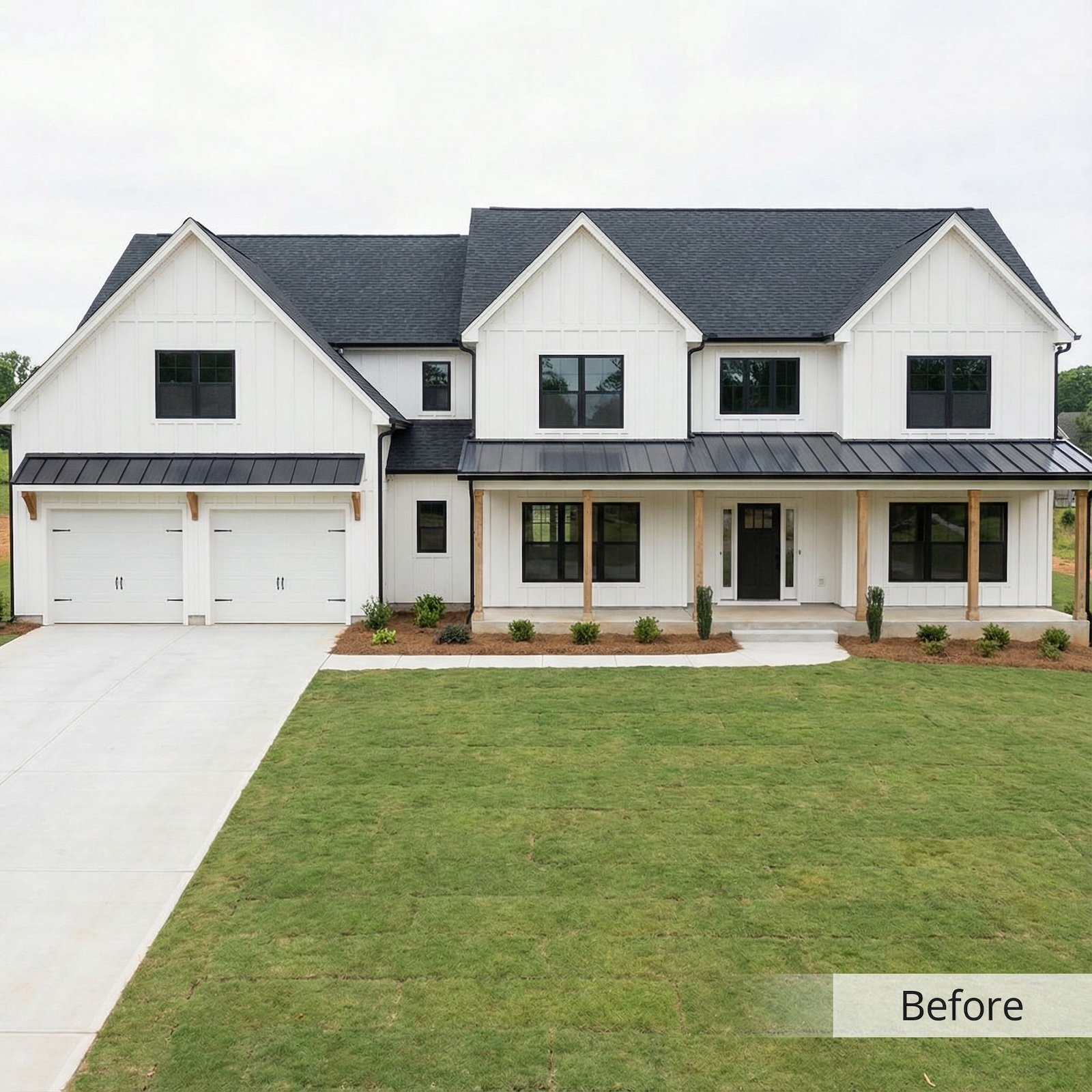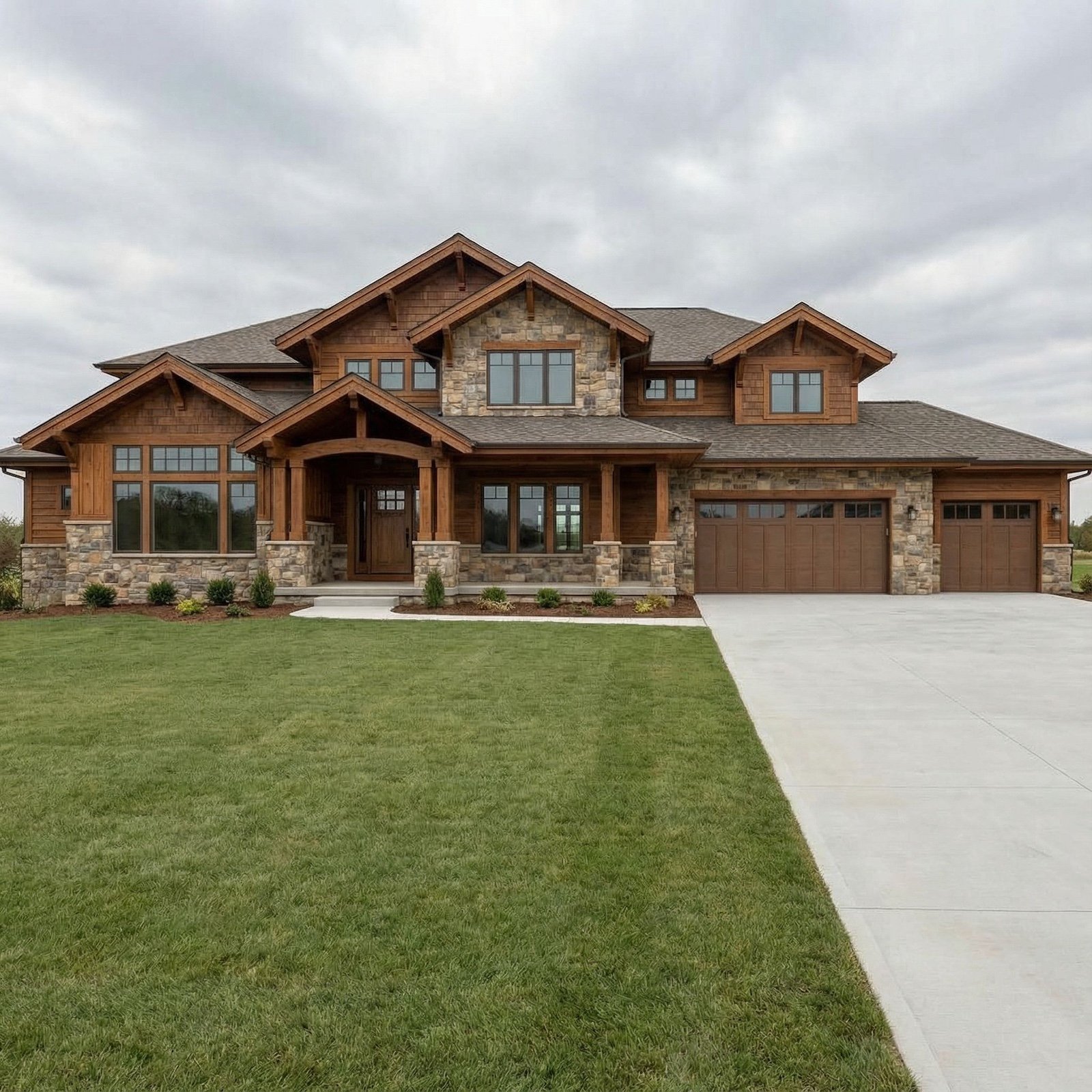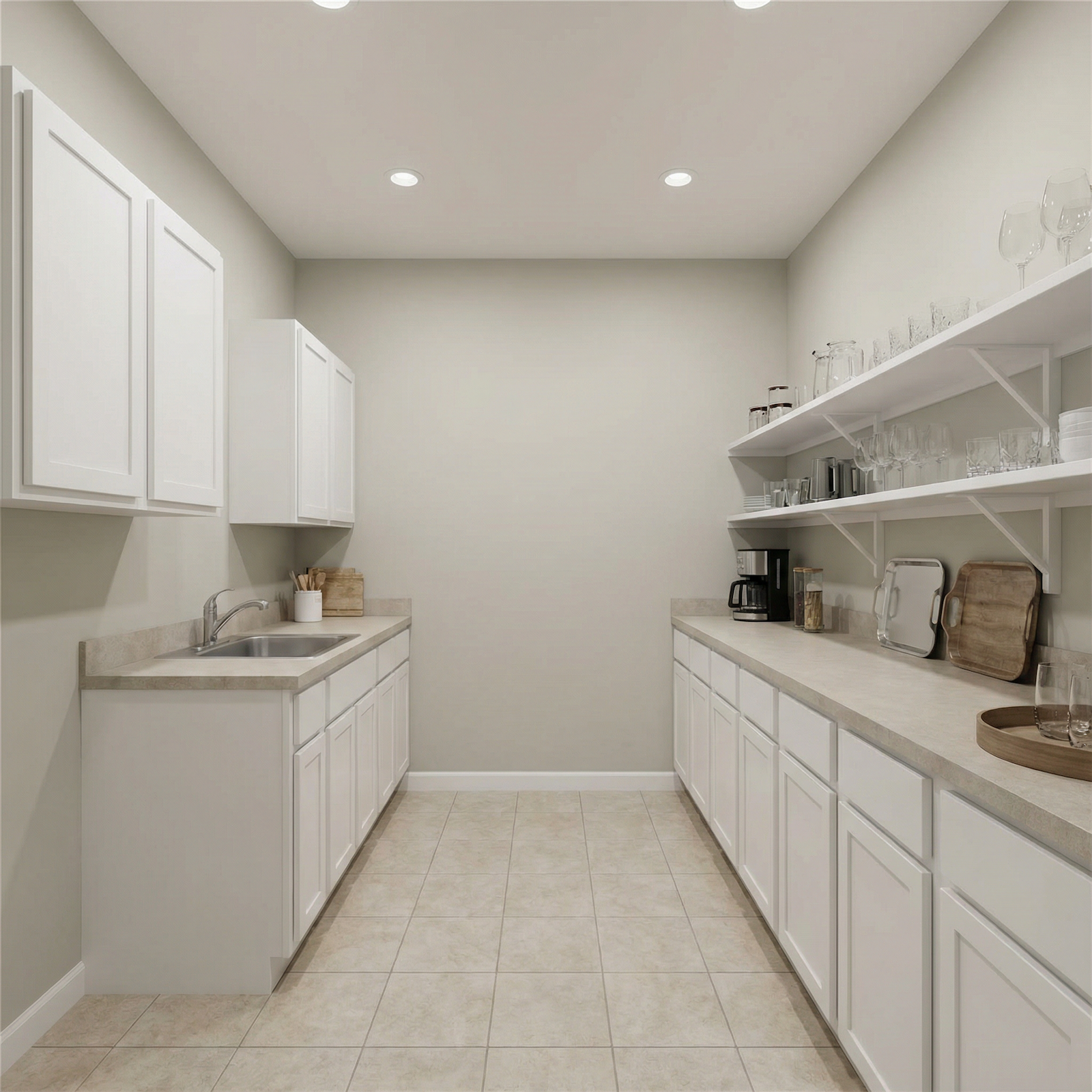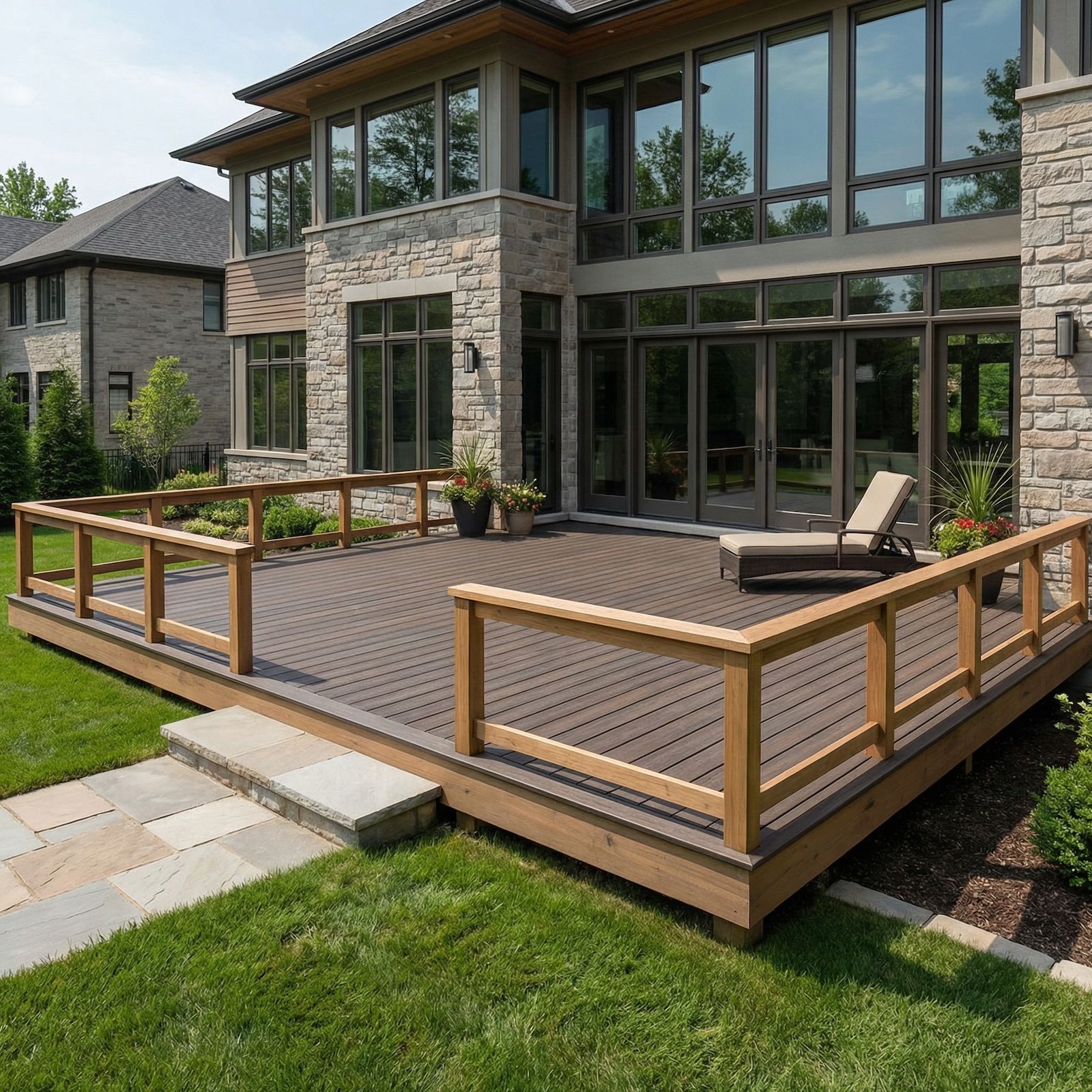
Best suburbs to live in Georgia
Cities may have the nightlife, but the convenience and affordability of the suburbs are becoming hot as the millennial generation moves into its homebuying phase. Even before the COVID-19 pandemic shook up workplace norms and superheated the housing market, folks have been flocking away from major urban centers.
In Colorado, for instance, lesser-known suburbs outside of Denver such as Boulder have become magnets for young parents, ranking among the biggest destinations for out-of-state millennials who chose to move in 2023. And companies are taking note of the trend as well: Many are establishing satellite offices and new headquarters in less urban areas.
Stacker compiled a list of the best suburbs to live in Georgia using data from Niche’s 2024 Best Places to Live. Niche ranks places to live based on an array of factors, including the cost of living, educational level of residents, housing costs, and quality of schools.
You may also like: Counties with the highest heart disease rates in Georgia

#29. Peachtree Corners, Georgia
– Overall Rank: 1,078
– Population: 42,147
– Median household income: $74,716
– Median home value: $444,000 (51% own)
– Median rent: $1,471 (49% rent)
– Top public schools: Gwinnett School of Mathematics, Science & Technology (grade A+), International Charter School of Atlanta (grade A), Paul Duke STEM High School (grade A)
– Top private schools: Fulton Science Academy Private School (grade A+), Atlanta International School (grade A+), Notre Dame Academy (grade A+)

About
Peachtree Corners, the newest city in Gwinnett County, Georgia, was incorporated in 2012 and now has more than 40,000 residents. Positioned along the Chattahoochee River, it combines suburban neighborhoods with a growing business community. Its location near Atlanta makes it an attractive home for commuters seeking a balance of work and lifestyle.
The city is recognized for Technology Park, a hub of innovation and corporate offices that has anchored its economy for decades. At the same time, residents enjoy access to parks, greenways, and the Town Center, which hosts restaurants, shops, and events. Schools and community programs further strengthen its family-oriented appeal.
Peachtree Corners thrives on both progress and connection, offering a strong sense of community through festivals, outdoor concerts, and neighborhood gatherings. Life here blends modern growth with natural beauty, shaped by its riverfront setting and entrepreneurial spirit. It is a city that continues to grow while preserving a welcoming suburban identity.
Where is Peachtree?
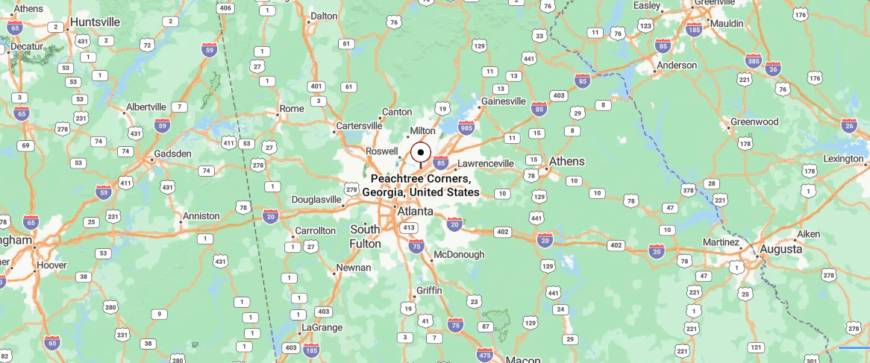
Peachtree Corners is a city in Gwinnett County, located about 20 miles northeast of downtown Atlanta. It borders the Chattahoochee River to the west and is connected to the region by Peachtree Industrial Boulevard and I-285. The area combines residential neighborhoods with a strong commercial base.
Technology Park Atlanta serves as the city’s business hub, housing tech companies and corporate offices. Green spaces and trails, including access to the Chattahoochee River, provide outdoor recreation. With its mix of suburban life and economic activity, Peachtree Corners plays a central role in metro Atlanta’s northern corridor.
#28. Sugar Hill, Georgia
– Overall Rank: 987
– Population: 24,947
– Median household income: $94,520
– Median home value: $330,100 (81% own)
– Median rent: $1,497 (19% rent)
– Top public schools: Gwinnett School of Mathematics, Science & Technology (grade A+), Alliance Academy for Innovation (grade A+), Buford Senior Academy (grade A+)
– Top private schools: Notre Dame Academy (grade A+), Greater Atlanta Christian School (grade A+), Pinecrest Academy (grade A+)

Were You Meant
to Live In?
About
Sugar Hill, a city in Gwinnett County with over 25,000 residents, has transformed from a quiet community into a thriving suburban hub. Once named for a spilled shipment of sugar along a local road, it has grown into one of the fastest-developing areas in the region. Its location between Buford and Suwanee makes it well-connected while retaining a distinct identity.
The city is home to The Eagle Theatre and The Bowl, venues that serve as cultural anchors for concerts, performances, and festivals. Residents also enjoy outdoor spaces like Gary Pirkle Park and access to nearby Lake Lanier for recreation. Schools in and around Sugar Hill add to its appeal for families seeking a stable community.
Sugar Hill fosters connection through local events, a walkable downtown, and active civic programs that bring neighbors together. The mix of entertainment, outdoor activity, and suburban comfort defines daily life. It continues to grow while holding onto the welcoming spirit that shaped its small-town beginnings.
Where is Sugar Hill?
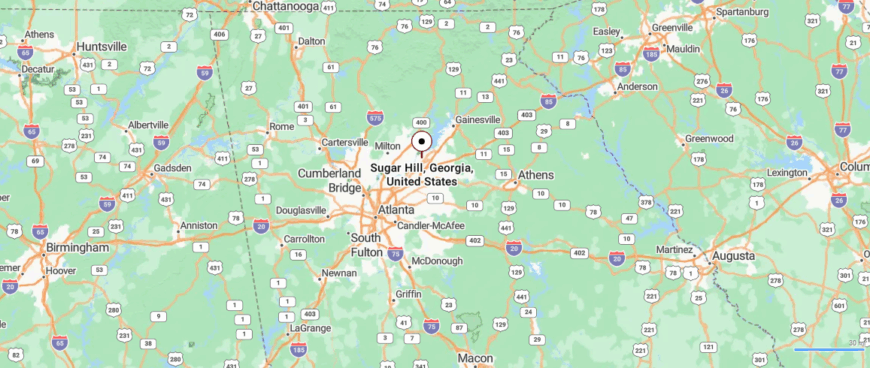
Sugar Hill is a city in Gwinnett County, situated in the foothills of North Georgia about 40 miles northeast of Atlanta. It lies along Georgia State Route 20 and is close to I-985, giving it easy access to Lake Lanier and surrounding communities. The city has grown from a quiet settlement into a thriving suburban center.
Downtown Sugar Hill features a modern city hall, the E Center, and an outdoor amphitheater that hosts community events. Parks, greenways, and nearby Lake Lanier provide plenty of outdoor activities for residents. Blending small-town atmosphere with steady development, Sugar Hill offers both community spirit and regional connectivity.
#27. Kennesaw, Georgia
– Overall Rank: 937
– Population: 33,360
– Median household income: $81,467
– Median home value: $262,000 (65% own)
– Median rent: $1,673 (35% rent)
– Top public schools: Kennesaw Mountain High School (grade A), Palmer Middle School (grade A minus), Bullard Elementary School (grade A minus)
– Top private schools: The Walker School (grade A+), Mount Paran Christian School (grade A+), North Cobb Christian School (grade A)

About
Kennesaw, a city in Cobb County with about 34,000 residents, is known for its deep Civil War history and strong sense of community. Kennesaw Mountain National Battlefield Park anchors its identity, offering trails, scenic views, and preserved battlefields that connect the city to its past. At the same time, its proximity to Atlanta keeps it modern and accessible.
The city is also home to Kennesaw State University, one of Georgia’s largest public universities, which brings energy, culture, and economic growth. Local parks, museums, and family-oriented programs add to its appeal for residents of all ages. With a mix of historic neighborhoods and newer developments, Kennesaw balances tradition and progress.
Community pride thrives through seasonal festivals, concerts, and gatherings that highlight its welcoming nature. Life in Kennesaw offers a blend of education, history, and suburban comfort. It is a place where the past and present coexist in everyday living.
Where is Kennesaw?
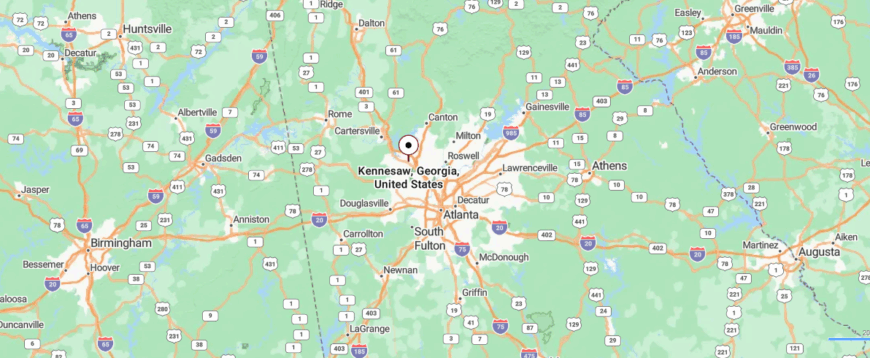
Kennesaw is a city in Cobb County, located about 25 miles northwest of downtown Atlanta. It is easily reached by I-75, making it a well-connected suburban hub in the metro area. The city is closely tied to Kennesaw Mountain, a historic Civil War site and popular hiking destination.
Kennesaw State University adds a strong educational and cultural presence to the community. Parks, museums, and historic districts highlight both recreation and heritage. With its mix of history, academics, and suburban growth, Kennesaw continues to play a vibrant role in northwest Georgia.
#26. Martinez, Georgia
– Overall Rank: 920
– Population: 33,773
– Median household income: $80,130
– Median home value: $211,200 (73% own)
– Median rent: $1,157 (27% rent)
– Top public schools: Stallings Island Middle School (grade A), Parkway Elementary School (grade A), River Ridge Elementary School (grade A)
– Top private schools: Augusta Preparatory Day School (grade A+), Westminster Schools of Augusta (grade A), Evans Christian Academy (grade A)

About
Martinez, an unincorporated community in Columbia County, Georgia, has grown into a major suburb of Augusta with about 35,000 residents. Its location offers easy access to the city’s jobs, culture, and healthcare while maintaining a quieter residential character. Established neighborhoods and modern developments provide a wide range of housing options for families and professionals.
The community features strong schools that serve as a central draw for families, along with shopping centers and local businesses that support daily life. Parks, golf courses, and access to the Savannah River create opportunities for outdoor recreation year-round. Residents enjoy both the convenience of suburban living and the resources of the nearby metropolitan area.
Martinez thrives on its balance of growth and stability, with neighborhoods that value connection and long-term roots. Community events, recreational programs, and a family-oriented atmosphere give it a welcoming identity. It remains a place where suburban comfort and metropolitan access meet.
Where is Martinez?
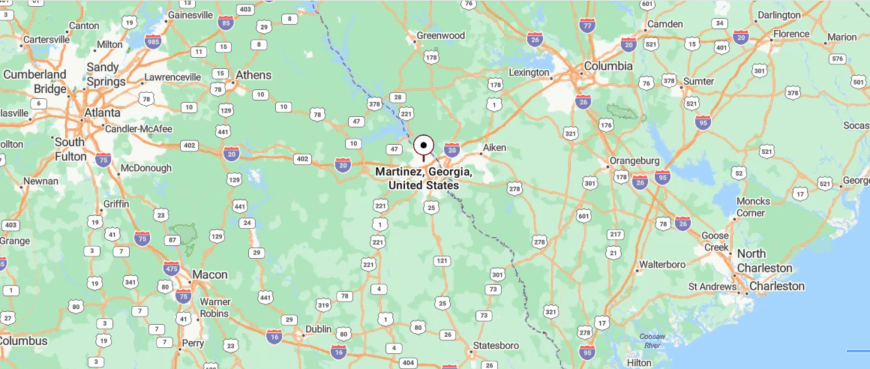
Martinez is a suburban community in Columbia County, located just northwest of Augusta. It is bordered by the Savannah River to the east and is connected to the region by I-20 and Washington Road. The area has grown as part of the Augusta metropolitan region while keeping a residential character.
Neighborhoods in Martinez are complemented by schools, shopping centers, and local parks. The Savannah Rapids Pavilion and Canal Headgates Park provide popular spots for outdoor recreation. With its balance of suburban living and easy access to Augusta, Martinez serves as a key community in eastern Georgia.
#25. Berkeley Lake, Georgia
– Overall Rank: 881
– Population: 2,527
– Median household income: $152,908
– Median home value: $644,100 (97% own)
– Median rent: $2,175 (3% rent)
– Top public schools: Gwinnett School of Mathematics, Science & Technology (grade A+), Paul Duke STEM High School (grade A), International Charter Academy of Georgia (grade A)
– Top private schools: Notre Dame Academy (grade A+), Greater Atlanta Christian School (grade A+), Marist School (grade A+)
You may also like: How drunk driving fatalities in Georgia compare to the rest of the US

About
Berkeley Lake, located in Gwinnett County, is a small city built around its namesake lake. With just over 2,000 residents, it is one of the smallest communities in the Atlanta metro area, known for its wooded neighborhoods and quiet, natural setting. The lake itself remains central to daily life, shaping both recreation and the city’s identity.
Originally a summer retreat, Berkeley Lake has evolved into a year-round residential community while preserving its natural landscape. Residents enjoy fishing, boating, and walking trails that highlight the city’s commitment to environmental stewardship. Strict zoning and conservation efforts have helped maintain its balance between growth and preservation.
Despite its small size, Berkeley Lake has a strong sense of community fostered through local events and neighborhood gatherings. Its schools and proximity to larger Gwinnett hubs add to its convenience without losing its close-knit feel. The city stands out as a haven where nature and suburban living coexist in harmony.
Where is Berkeley Lake?
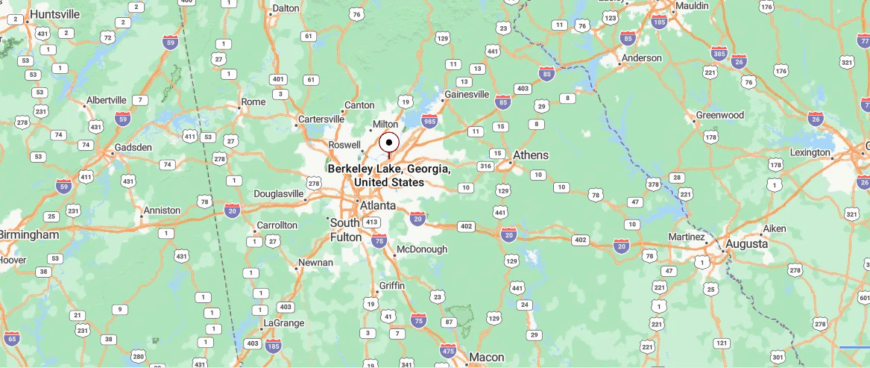
Berkeley Lake is a small city in Gwinnett County, set around the private lake that gives it its name. It is located near Peachtree Corners and Duluth, with quick access to Peachtree Industrial Boulevard and I-285 for commuting into Atlanta. Much of the community is centered on its wooded setting and the lakefront.
The city is largely residential, with homes surrounding Berkeley Lake and connected by winding, tree-lined roads. Green space and conservation remain priorities, with areas preserved for wildlife and recreation. Known for its natural setting and close-knit feel, Berkeley Lake offers a quiet retreat within metro Atlanta’s northern suburbs.
#24. Vinings, Georgia
– Overall Rank: 784
– Population: 12,947
– Median household income: $91,071
– Median home value: $559,900 (36% own)
– Median rent: $1,662 (64% rent)
– Top public schools: Atlanta Classical Academy (grade A), Teasley Elementary School (grade A minus), Nickajack Elementary School (grade A minus)
– Top private schools: The Westminster Schools (grade A+), Pace Academy (grade A+), Atlanta International School (grade A+)

About
Vinings, an unincorporated community in Cobb County, sits just northwest of Atlanta along the Chattahoochee River. With a population of around 12,000, it offers a mix of upscale neighborhoods, condominiums, and townhomes that appeal to professionals and families alike. Its location near Buckhead and downtown Atlanta makes it highly desirable for commuters seeking both convenience and comfort.
The community is known for Vinings Jubilee, a charming shopping and dining district that serves as its centerpiece. Parks, trails, and riverfront access provide opportunities for recreation, while nearby Truist Park adds to the area’s entertainment options. Strong schools and a lively business district further support its residential appeal.
Vinings blends a village-like atmosphere with metropolitan access, creating a unique balance for residents. Community events and neighborhood associations foster connection in this growing area. It is a place where suburban living meets the energy of Atlanta’s urban core.
Where is Vinings?
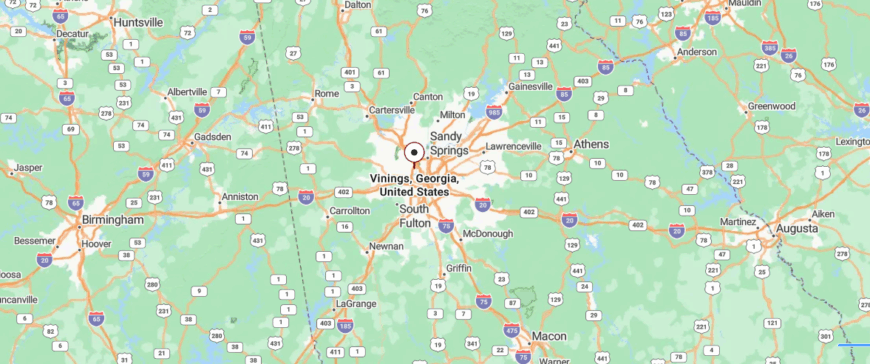
Vinings is an unincorporated community in Cobb County, located just northwest of downtown Atlanta along the Chattahoochee River. It is bordered by Buckhead and Cumberland, with quick access to I-285 and I-75, making it a highly connected part of the metro area. Once a railroad village, it has grown into a sought-after residential and commercial district.
Vinings Jubilee serves as the community’s town center, featuring shops, dining, and gathering spaces. The area also offers riverfront parks and trails, adding a natural balance to its urban convenience. With its mix of history, upscale living, and proximity to Atlanta, Vinings stands out as a distinctive enclave.
#23. Smyrna, Georgia
– Overall Rank: 780
– Population: 55,863
– Median household income: $92,258
– Median home value: $380,100 (57% own)
– Median rent: $1,553 (43% rent)
– Top public schools: Atlanta Classical Academy (grade A), Wheeler High School (grade A), King Springs Elementary School (grade A)
– Top private schools: The Westminster Schools (grade A+), Pace Academy (grade A+), Atlanta International School (grade A+)

About
Smyrna, located in Cobb County just northwest of Atlanta, has grown into a vibrant city of over 55,000 residents. Once a small railroad stop, it has transformed into one of the most desirable suburbs in the metro area. Its proximity to Interstate 285 and downtown Atlanta makes it especially appealing for commuters.
The city is recognized for its revitalized downtown known as the Village Green, where shops, restaurants, and community spaces bring residents together. Parks and trails, including access to the Silver Comet Trail, support an active outdoor lifestyle. Festivals, concerts, and local events further highlight Smyrna’s lively community culture.
Strong schools, diverse housing options, and ongoing development projects continue to fuel Smyrna’s growth. Residents value its balance of small-town charm with urban convenience. It is a community where progress and tradition work hand in hand.
Where is Smyrna?
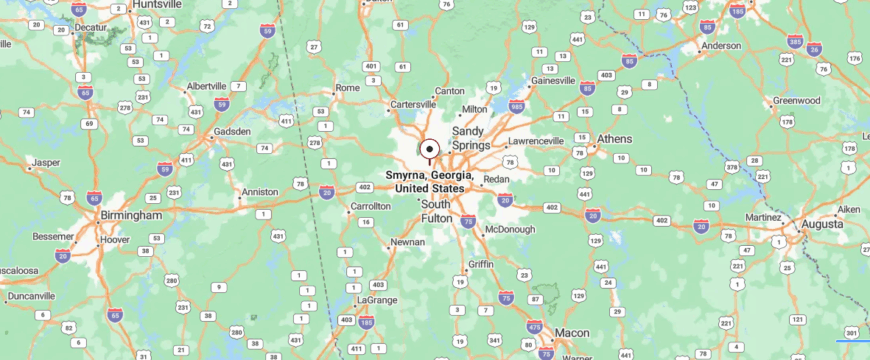
Smyrna is a city in Cobb County, located about 10 miles northwest of downtown Atlanta. It is connected by I-285 and I-75, making it a convenient hub within the metro area. The city has transformed from a small town into a thriving suburban community.
At the center is the Smyrna Market Village, a walkable district with shops, restaurants, and community events. Parks and trails, including access to the Silver Comet Trail, highlight the city’s emphasis on outdoor activity. Combining accessibility, local character, and steady growth, Smyrna has become one of Atlanta’s most popular suburbs.
#22. Druid Hills, Georgia
– Overall Rank: 730
– Population: 8,467
– Median household income: $138,262
– Median home value: $744,600 (63% own)
– Median rent: $1,968 (37% rent)
– Top public schools: Talley Street Elementary School (grade A+), DeKalb School of the Arts (grade A), DeKalb Early College Academy (grade A)
– Top private schools: Pace Academy (grade A+), Atlanta International School (grade A+), The Paideia School (grade A+)

About
Druid Hills, an unincorporated community east of Atlanta, is best known for its historic neighborhoods and ties to Emory University. Designed in part by famed landscape architect Frederick Law Olmsted, its tree-lined streets and classic homes reflect early 20th-century planning ideals. With a population of 8,467, it blends academic life, history, and suburban calm.
The area is anchored by Emory University and the Centers for Disease Control and Prevention, which shape both its economy and culture. Fernbank Museum of Natural History and the Fernbank Forest highlight its commitment to education and green space. Parks, trails, and cultural venues make recreation and learning a natural part of daily life.
Community pride is reinforced through historic preservation efforts, neighborhood associations, and local events. Residents enjoy a balance of tradition and innovation, where academic institutions and preserved landscapes coexist. Druid Hills remains one of metro Atlanta’s most distinctive and storied communities.
Where is Druid Hills?

Druid Hills is an historic neighborhood in DeKalb County, located just east of downtown Atlanta. Designed in the late 19th century by landscape architect Frederick Law Olmsted, it features winding roads, large estates, and tree-filled streets. The community is bordered by Ponce de Leon Avenue and has easy access to both Midtown and Decatur.
Home to Emory University and the Centers for Disease Control and Prevention, Druid Hills carries strong educational and cultural significance. Lullwater Preserve and other green spaces add natural beauty to the neighborhood. With its blend of historic design, institutions, and greenery, Druid Hills remains one of Atlanta’s most distinctive communities.
#21. Woodstock, Georgia
– Overall Rank: 724
– Population: 35,171
– Median household income: $100,913
– Median home value: $359,800 (65% own)
– Median rent: $1,656 (35% rent)
– Top public schools: International Charter School of Atlanta (grade A), Fulton Academy of Science & Technology (grade A), Bascomb Elementary School (grade A)
– Top private schools: The Walker School (grade A+), Mount Paran Christian School (grade A+), North Cobb Christian School (grade A)
You may also like: Best amusement parks in Georgia

About
Woodstock, located in Cherokee County, has grown rapidly into one of metro Atlanta’s most popular suburban cities with more than 35,000 residents. Once a small railroad town, it has transformed into a lively community that still honors its historic roots. Its location along I-575 makes it convenient for commuters while offering its own strong local identity.
Downtown Woodstock is the centerpiece of the city, featuring restored historic buildings, restaurants, shops, and live music venues. Residents also enjoy access to parks, trails, and nearby Lake Allatoona, making outdoor recreation a central part of life. Schools, local businesses, and community services reinforce its family-friendly appeal.
Woodstock thrives on a mix of tradition and growth, where festivals, concerts, and farmers markets strengthen community ties. Its balance of small-town charm with modern development continues to attract families and professionals alike. The city remains a place where history, culture, and progress come together.
Where is Woodstock?
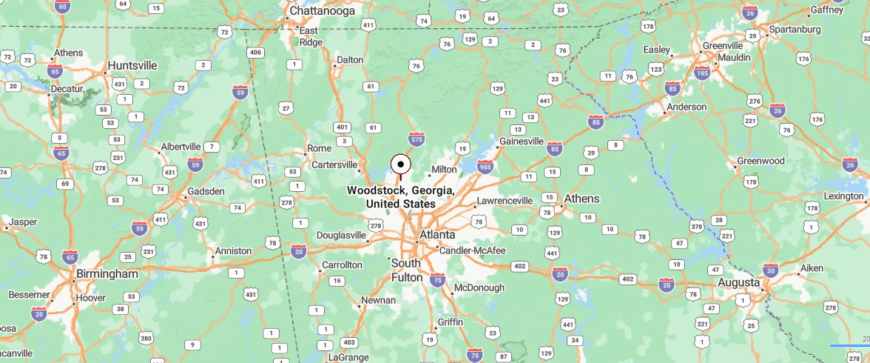
Would you like to save this?
Woodstock is a city in Cherokee County, located about 30 miles north of downtown Atlanta. It is connected to the metro area by I-575 and is part of the fast-growing region along Atlanta’s northern corridor. Once a small railroad town, Woodstock has expanded into a vibrant suburban center.
Downtown Woodstock features restored historic buildings, boutiques, restaurants, and live music venues, creating a lively community core. Parks and trails, including the Greenprints Trail System and nearby Olde Rope Mill Park, highlight outdoor life. With its mix of historic charm, modern development, and recreational opportunities, Woodstock has become a dynamic place to live and visit.
#20. Watkinsville, Georgia
– Overall Rank: 657
– Population: 2,998
– Median household income: $78,750
– Median home value: $291,200 (77% own)
– Median rent: $1,381 (23% rent)
– Top public schools: Dove Creek Elementary School (grade A+), Oconee County Elementary School (grade A), Oconee County Middle School (grade A)
– Top private schools: Athens Academy (grade A+), Prince Avenue Christian School (grade A), Westminster Christian Academy (grade A minus)

About
Watkinsville, the seat of Oconee County, is a small city of around 3,000 residents often referred to as the “Artland of Georgia.” Its reputation comes from a thriving arts community, with galleries, studios, and festivals woven into daily life. Located just south of Athens, it combines small-town atmosphere with access to a larger cultural hub.
The city’s historic downtown is lined with shops, cafés, and preserved buildings that reflect its 19th-century roots. Local landmarks like the Eagle Tavern Museum highlight its ties to Georgia’s early history. Parks and community spaces provide areas for gatherings, recreation, and seasonal events.
Watkinsville thrives on creativity and connection, with art shows, concerts, and cultural events forming the heartbeat of the community. Residents value its mix of history, artistry, and neighborly spirit. It remains a place where tradition and culture continue to shape a distinctive small-town identity.
Where is Watkinsville?
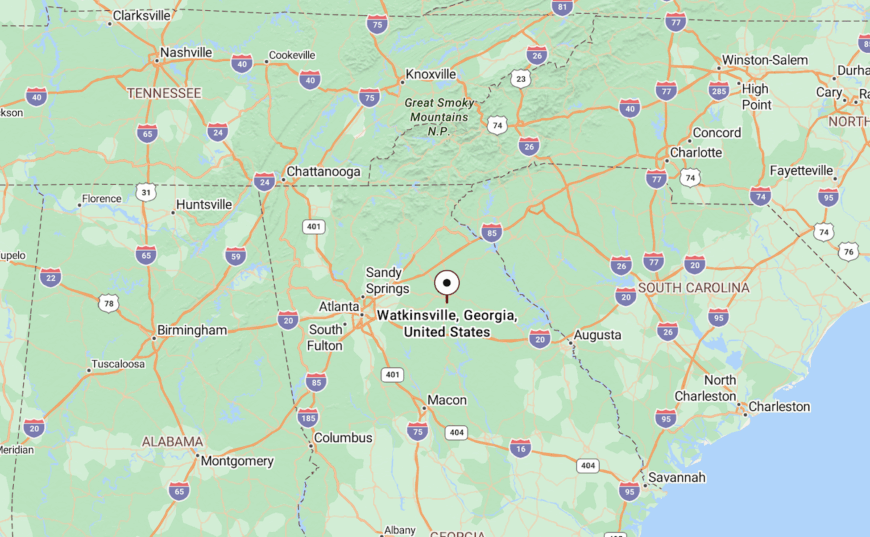
Watkinsville is the county seat of Oconee County, located about 8 miles south of Athens in northeastern Georgia. It is connected by U.S. Route 441 and State Route 15, offering quick access to the University of Georgia and the surrounding region. The town is known as the “Artland of Georgia” for its concentration of galleries and creative spaces.
The historic downtown includes preserved buildings, local shops, and community landmarks. Parks and trails provide outdoor opportunities, while annual festivals bring residents together. With its artistic identity, small-town charm, and proximity to Athens, Watkinsville serves as both a cultural and community hub.
#19. Bogart, Georgia
– Overall Rank: 651
– Population: 1,276
– Median household income: $83,333
– Median home value: $235,300 (79% own)
– Median rent: $996 (21% rent)
– Top public schools: North Oconee High School (grade A+), Dove Creek Elementary School (grade A+), Malcom Bridge Elementary School (grade A)
– Top private schools: Athens Academy (grade A+), Monsignor Donovan Catholic High School (grade A), Prince Avenue Christian School (grade A)

About
Bogart, a small city spanning Clarke and Oconee counties, is home to just over 1,200 residents. Originally a railroad town, it has kept much of its rural character while developing into a close-knit suburban community. Its location just west of Athens gives it access to the city’s opportunities while preserving a quieter pace.
The community reflects its heritage with historic structures like the old train depot and family-owned farms that still dot the landscape. Local parks and recreation programs provide space for gatherings and activities, while schools in both counties support family life. Residents enjoy the balance of countryside living with suburban convenience.
Bogart’s sense of community shines through seasonal festivals, local sports, and neighborhood events that bring people together. Life here emphasizes tradition, simplicity, and strong ties between neighbors. It remains a small Georgia town that values its roots while adapting to steady growth.
Where is Bogart?

Bogart is a small town that spans Oconee and Clarke counties in northeastern Georgia. It sits just west of Athens and is connected by U.S. Route 78, giving residents easy access to the city and the University of Georgia. Originally a railroad town, Bogart has kept its small-scale character while experiencing suburban growth.
The community features a mix of historic buildings, neighborhoods, and local businesses. Parks and nearby farmlands add open space and rural scenery to the area. With its blend of history, convenience, and small-town feel, Bogart offers a quieter setting close to Athens.
#18. Avondale Estates, Georgia
– Overall Rank: 648
– Population: 3,507
– Median household income: $136,250
– Median home value: $492,500 (88% own)
– Median rent: $1,675 (12% rent)
– Top public schools: Talley Street Elementary School (grade A+), DeKalb School of the Arts (grade A), DeKalb Early College Academy (grade A)
– Top private schools: The Paideia School (grade A+), Midtown International School (grade A+), Capstone Academy (grade A+)

About
Avondale Estates, a small city in DeKalb County with about 3,000 residents, was founded in the 1920s and designed in the style of a Tudor village. Its distinctive architecture, tree-lined streets, and compact layout give it one of the most recognizable identities in metro Atlanta. The community sits just east of Decatur, offering suburban calm with quick access to the city.
The downtown area is home to restaurants, breweries, and shops that reflect a mix of tradition and modern creativity. Avondale Estates is also known as the birthplace of Waffle House, with a museum dedicated to its history. Parks, walking trails, and neighborhood events add to its family-friendly environment.
Community pride is reinforced through active civic organizations, seasonal festivals, and historic preservation efforts. Avondale Estates thrives on its balance of heritage and modern living, creating a distinct charm. It remains a place where design, culture, and community intersect.
Where is Avondale Estates?
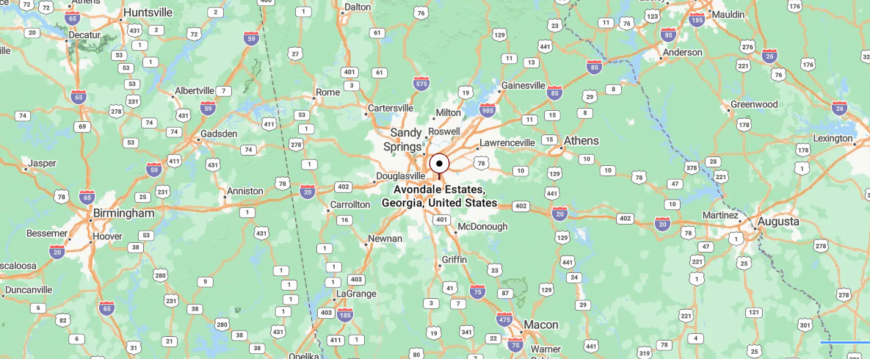
Avondale Estates is located in DeKalb County, about 7 miles east of downtown Atlanta. It sits directly next to Decatur and is bordered by neighborhoods such as Scottdale and Belvedere Park. U.S. Route 278 runs through the city, with I-285 and I-20 only a short distance away for regional access.
The community’s location offers quick connections to MARTA stations in Decatur and Kensington, making transit into Atlanta convenient. Its proximity to both the city and suburban corridors places it in a central position within metro Atlanta. Surrounded by established towns and major highways, Avondale Estates benefits from being both accessible and well-situated.
#17. Evans, Georgia
– Overall Rank: 627
– Population: 37,456
– Median household income: $125,325
– Median home value: $314,100 (89% own)
– Median rent: $1,470 (11% rent)
– Top public schools: Stallings Island Middle School (grade A), Parkway Elementary School (grade A), River Ridge Elementary School (grade A)
– Top private schools: Augusta Preparatory Day School (grade A+), Westminster Schools of Augusta (grade A), Evans Christian Academy (grade A)

About
Evans, an unincorporated community in Columbia County, has grown into one of the Augusta area’s most desirable suburbs with a population exceeding 35,000. Its location northwest of Augusta gives residents convenient access to the city while offering a quieter suburban lifestyle. Established neighborhoods, new developments, and expanding commercial areas highlight its steady growth.
The community is anchored by Evans Towne Center Park, which serves as a hub for concerts, festivals, and year-round events. Families benefit from highly rated schools that consistently attract newcomers to the area. Clarks Hill Lake, just minutes away, provides opportunities for boating, fishing, and camping.
Evans thrives on its blend of family-centered living, outdoor recreation, and ongoing development. Local businesses, shopping centers, and cultural programs contribute to its appeal. It remains a place where convenience, community spirit, and steady progress come together.
Where is Evans?
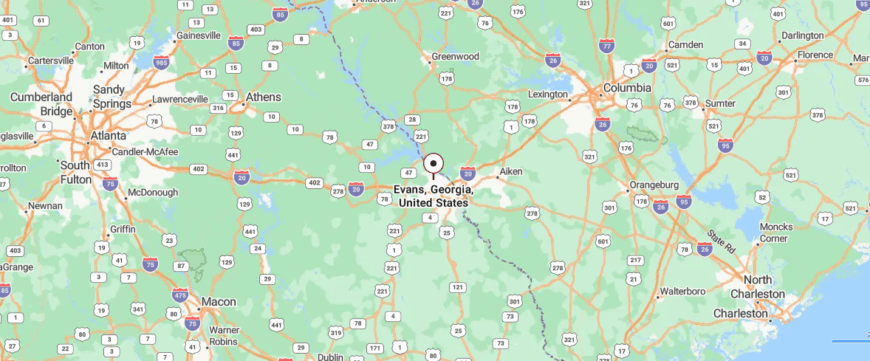
Evans is located in Columbia County, directly northwest of Augusta in east-central Georgia. The community sits near the Savannah River and is within minutes of the Georgia–South Carolina border. Washington Road and I-20 provide the main travel routes, linking Evans easily to Augusta and beyond.
Its position places it close to neighboring towns like Martinez and Grovetown while remaining a suburban extension of Augusta. Fort Eisenhower lies just to the south, anchoring the area with a major military presence. With its proximity to regional highways and urban centers, Evans serves as a well-connected part of the Augusta metro area.
#16. Mountain Park, Georgia
– Overall Rank: 593
– Population: 959
– Median household income: $130,208
– Median home value: $323,700 (91% own)
– Median rent: $1,543 (9% rent)
– Top public schools: Roswell High School (grade A), International Charter School of Atlanta (grade A), Fulton Academy of Science & Technology (grade A)
– Top private schools: Fulton Science Academy Private School (grade A+), Mount Pisgah Christian School (grade A+), King’s Ridge Christian School (grade A)
You may also like: Fastest-growing jobs in Georgia

About
Mountain Park, a tiny city straddling Fulton and Cherokee counties, is home to 959 residents, making it one of Georgia’s smallest municipalities. Originally built as a summer retreat, it has preserved its rustic character even as the Atlanta metro grew around it. The community is defined by winding wooded roads and two spring-fed lakes at its center.
Lake Garrett and Lake Cherful serve as gathering spots for fishing, boating, and community events. Wildlife such as deer, foxes, and a variety of birds are part of everyday life, reinforcing the area’s natural charm. Strict zoning and conservation efforts ensure the town’s environmental character is protected.
Despite its size, Mountain Park has an active civic life supported by festivals, seasonal celebrations, and neighborly traditions. Residents take pride in caring for their land and maintaining close connections with one another. It remains a rare pocket of tranquility within metro Atlanta, where nature and community coexist seamlessly.
Where is Mountain Park?

Mountain Park is a small city that straddles both Fulton and Cherokee counties in northern Georgia. It is located about 20 miles northeast of downtown Atlanta, positioned between Roswell to the west and Norcross to the southeast. The community is accessible by Holcomb Bridge Road, which links directly to Georgia 400 and I-85.
Its setting is defined by two lakes—Lake Garrett and Lake Cherful—around which the residential areas are built. The city’s position places it near larger suburban centers like Alpharetta, Duluth, and Peachtree Corners. With close proximity to major highways and surrounding towns, Mountain Park sits quietly within Atlanta’s northern corridor.
#15. Dunwoody, Georgia
– Overall Rank: 552
– Population: 51,458
– Median household income: $106,710
– Median home value: $545,200 (56% own)
– Median rent: $1,721 (44% rent)
– Top public schools: Denmark High School (grade A+), Atlanta Classical Academy (grade A), DeKalb School of the Arts (grade A)
– Top private schools: Fulton Science Academy Private School (grade A+), The Westminster Schools (grade A+), Pace Academy (grade A+)

About
Dunwoody, located in DeKalb County just north of Atlanta, is a thriving suburban city with nearly 50,000 residents. Incorporated in 2008, it has quickly established itself as a hub for business, shopping, and residential life. Its location along I-285 and GA-400 makes it a prime spot for commuters.
The city is anchored by Perimeter Center, one of the Southeast’s largest business districts, which also features extensive retail and dining. Residents enjoy outdoor spaces like Brook Run Park, with trails, playgrounds, and a popular farmers market. Schools in the area are well regarded, adding to Dunwoody’s family-oriented appeal.
Community events, concerts, and cultural programs give the city a lively rhythm throughout the year. Neighborhood associations and local organizations foster strong civic engagement. Dunwoody continues to balance rapid growth with a commitment to community spirit and livability.
Where is Dunwoody?
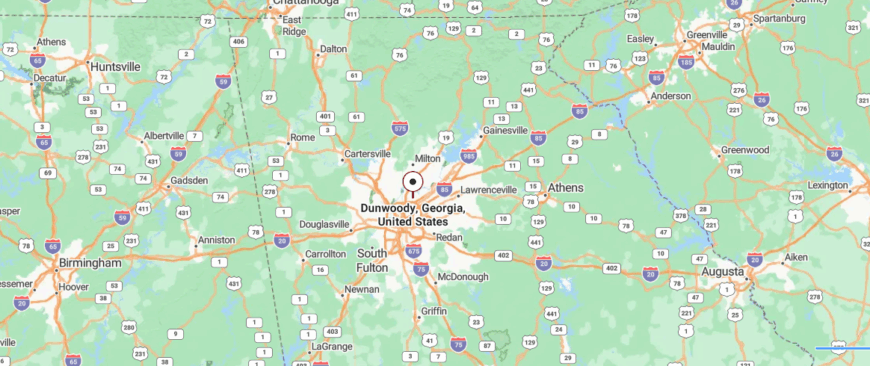
Dunwoody is in DeKalb County, situated about 15 miles north of downtown Atlanta. It borders Sandy Springs to the west and Peachtree Corners to the northeast, with Brookhaven and Chamblee lying just south. The city is served by I-285, Georgia 400, and MARTA’s Red Line, making it a key access point within metro Atlanta.
Its location places Dunwoody in the heart of Atlanta’s northern suburbs, anchored by the Perimeter business district. Surrounding cities like Roswell, Alpharetta, and Decatur are all within easy reach. With direct highway and transit connections, Dunwoody is positioned as both a residential and commercial hub in the region.
#14. Brookhaven, Georgia
– Overall Rank: 528
– Population: 56,848
– Median household income: $114,570
– Median home value: $626,800 (55% own)
– Median rent: $1,711 (45% rent)
– Top public schools: Talley Street Elementary School (grade A+), Atlanta Classical Academy (grade A), DeKalb School of the Arts (grade A)
– Top private schools: Fulton Science Academy Private School (grade A+), The Westminster Schools (grade A+), Pace Academy (grade A+)

About
Brookhaven, located in DeKalb County just northeast of Atlanta, became the county’s largest city after its incorporation in 2012. With a population of more than 55,000, it blends established neighborhoods, modern developments, and a diverse community. Its location along Peachtree Road makes it highly accessible while maintaining a suburban feel.
The city is home to Murphey Candler Park, Blackburn Park, and Briarwood Park, which provide trails, sports fields, and green space. A growing dining and shopping scene, especially along Dresden Drive, adds to its appeal. Brookhaven also benefits from strong schools and proximity to major business districts.
Community spirit is fostered through cultural festivals, neighborhood events, and recreational programs that bring residents together. Brookhaven continues to grow while preserving its family-friendly identity. It remains a city where suburban comfort and urban access come together seamlessly.
Where is Brookhaven?
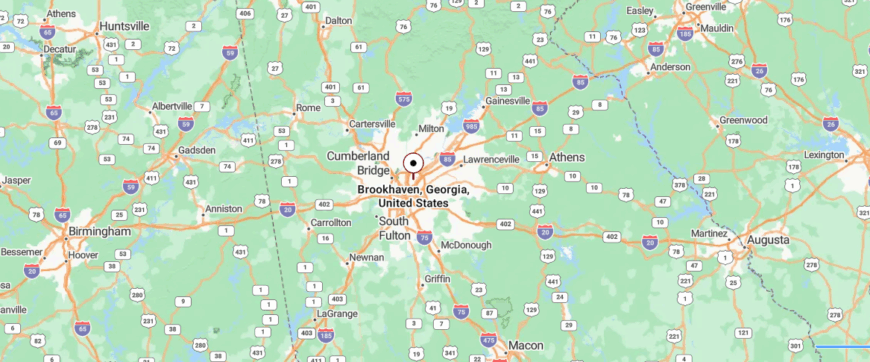
Brookhaven is located in DeKalb County, about 10 miles northeast of downtown Atlanta. It borders Buckhead to the west, Chamblee to the east, and Sandy Springs to the north. The city is connected by major routes including Peachtree Road, I-85, and MARTA’s Gold Line.
Positioned inside the I-285 corridor, Brookhaven sits in a central spot within Atlanta’s inner-ring suburbs. Its location provides quick access to Midtown, Perimeter Center, and other nearby business districts. With close ties to surrounding neighborhoods and major highways, Brookhaven holds a key place in the metro area’s north side.
13. Duluth, Georgia
– Overall Rank: 497
– Population: 31,742
– Median household income: $88,915
– Median home value: $334,800 (55% own)
– Median rent: $1,675 (45% rent)
– Top public schools: Gwinnett School of Mathematics, Science & Technology (grade A+), Buford Senior Academy (grade A+), Peachtree Ridge High School (grade A+)
– Top private schools: Fulton Science Academy Private School (grade A+), Notre Dame Academy (grade A+), Greater Atlanta Christian School (grade A+)

About
Duluth, a city in Gwinnett County with a population of about 30,000, has grown from a small railroad town into a thriving suburban hub. Its location northeast of Atlanta keeps it well connected while still maintaining its own identity. The community is known for balancing tradition with steady development.
Downtown Duluth serves as the city’s cultural heart, hosting concerts, festivals, and family events on the Town Green. Local restaurants, shops, and galleries add to its lively atmosphere. Parks and greenways provide residents with easy access to outdoor activities.
Community pride is reinforced through schools, civic organizations, and neighborhood events that strengthen local ties. Duluth thrives on its mix of history, culture, and modern amenities. It remains a place where suburban living feels active, connected, and welcoming.
Where is Duluth?

Duluth is a city in Gwinnett County, located about 25 miles northeast of downtown Atlanta. It sits near the junction of I-85 and Peachtree Industrial Boulevard, giving it strong regional connectivity. The Chattahoochee River forms part of its western boundary, separating it from neighboring Fulton County.
Its position places Duluth close to cities like Johns Creek, Norcross, and Suwanee. The city is also near the Infinite Energy Center, a major event and business venue in the region. With access to highways, riverfront borders, and nearby suburban hubs, Duluth is well-situated within Atlanta’s northeast corridor.
#12. Sandy Springs, Georgia
– Overall Rank: 466
– Population: 107,221
– Median household income: $93,303
– Median home value: $556,300 (50% own)
– Median rent: $1,670 (50% rent)
– Top public schools: Denmark High School (grade A+), Atlanta Classical Academy (grade A), International Charter School of Atlanta (grade A)
– Top private schools: Fulton Science Academy Private School (grade A+), The Westminster Schools (grade A+), Pace Academy (grade A+)

About
Sandy Springs, located just north of Atlanta in Fulton County, is one of Georgia’s largest cities with more than 100,000 residents. Incorporated in 2005, it quickly grew into a thriving urban center while preserving a suburban lifestyle. Its location along GA-400 and I-285 makes it a major hub for business and commuting.
The city is home to a wide range of employers, hospitals, and corporate headquarters, giving it a strong economic base. Outdoor life is equally important, with access to the Chattahoochee River, Morgan Falls Overlook Park, and miles of trails. Sandy Springs also boasts a diverse dining scene and cultural venues like City Springs, which hosts concerts and performances.
Community life is enriched through festivals, farmers markets, and neighborhood events that bring residents together. Schools and civic programs further support its family-friendly reputation. Sandy Springs stands out as a place where economic vitality, recreation, and suburban comfort meet.
Where is Sandy Springs?

Would you like to save this?
Sandy Springs is in northern Fulton County, directly bordering the city of Atlanta to the south. It is framed by the Chattahoochee River on its western side and sits along Georgia 400, with I-285 cutting through its center. This location places Sandy Springs at a major crossroads of the metro area.
The city is surrounded by other key suburbs, including Dunwoody to the east and Roswell to the north. Its central placement within the Perimeter area gives it quick access to business, healthcare, and cultural hubs. With both riverfront boundaries and major highways, Sandy Springs is positioned as a core part of Atlanta’s northern corridor.
#11. Peachtree City, Georgia
– Overall Rank: 460
– Population: 38,414
– Median household income: $111,850
– Median home value: $435,300 (74% own)
– Median rent: $1,841 (26% rent)
– Top public schools: McIntosh High School (grade A+), Starrs Mill High School (grade A), Coweta Charter Academy (grade A)
– Top private schools: Landmark Christian School (grade A+), The Forest School: An Acton Academy (grade A+), Counterpane Montessori School (grade A)
You may also like: Best beach towns on the East Coast

About
Peachtree City, in Fayette County, is a planned community of more than 38,000 residents known for its unique network of golf cart paths. Founded in the 1950s, it was designed with neighborhoods, schools, shopping centers, and recreation connected by over 100 miles of multi-use trails. Its layout creates a lifestyle that blends suburban living with mobility and convenience.
The city offers five lakes, multiple golf courses, and abundant green space, making outdoor recreation central to daily life. Lake Peachtree and Lake Kedron serve as focal points for boating, fishing, and community gatherings. Schools are consistently well regarded, reinforcing the area’s family-oriented appeal.
Community spirit is strong, with concerts, festivals, and sports programs filling the calendar year-round. Local businesses and a growing arts scene add vibrancy while preserving the city’s neighborly feel. Peachtree City remains a place where planning, recreation, and community connection come together seamlessly.
Where is Peachtree City?
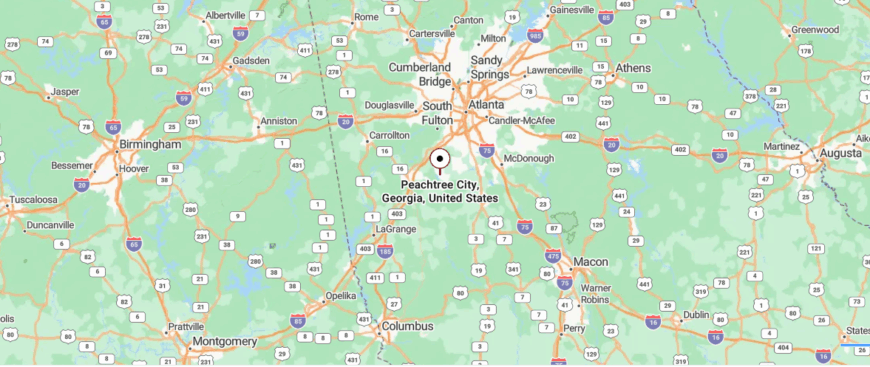
Peachtree City is in Fayette County, about 30 miles southwest of downtown Atlanta. It is bordered by Tyrone to the north and Senoia to the southeast, with State Route 54 and State Route 74 serving as its main connections. The city is also within reach of I-85, making travel into Atlanta and Hartsfield–Jackson Airport convenient.
Its location is distinctive for an extensive network of golf cart paths that connect neighborhoods, shopping areas, and parks. Nearby communities like Fayetteville and Newnan provide additional regional links. With its position in southwest metro Atlanta, Peachtree City serves as both a residential hub and a unique suburban destination.
#10. Lookout Mountain, Georgia
– Overall Rank: 428
– Population: 1,793
– Median household income: $145,625
– Median home value: $451,200 (89% own)
– Median rent: $1,133 (11% rent)
– Top public schools: Fairyland Elementary School (grade A), Chattanooga Valley Middle School (grade B), Ridgeland High School (grade B)
– Top private schools: McCallie School (grade A+), Baylor School (grade A+), Girls Preparatory School (grade A)

About
Lookout Mountain, a small city in Walker County, is perched on the southern end of the mountain that shares its name. With fewer than 2,000 residents, it offers a quiet, close-knit community surrounded by dramatic natural scenery. Its elevation provides sweeping views of the Tennessee Valley and nearby Chattanooga.
The area is best known for iconic attractions like Rock City Gardens and Ruby Falls, which draw visitors from across the country. Residents enjoy access to trails, scenic overlooks, and outdoor activities that define the community’s lifestyle. Schools and local services support its family-friendly reputation.
Lookout Mountain thrives on its blend of tourism, history, and everyday residential life. Community events, neighborhood traditions, and a shared love of the outdoors strengthen its identity. It remains a place where natural beauty and small-town living come together.
Where is Lookout Mountain?
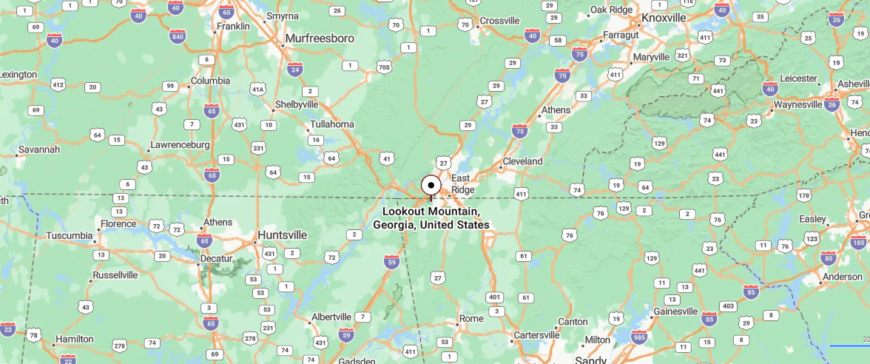
Lookout Mountain is a small city in Walker County, positioned on the state’s northwest border with Tennessee. It sits atop the southern end of Lookout Mountain, directly overlooking Chattanooga just across the state line. The community is reached by Lookout Mountain Parkway and State Route 157, linking it to nearby valleys and towns.
Its elevated location provides views of the Tennessee River and surrounding Appalachian foothills. Neighboring communities include Rossville and Flintstone in Georgia, with Chattanooga only minutes away. With its mountaintop setting and border location, Lookout Mountain serves as a scenic gateway between Georgia and Tennessee.
#9. North Druid Hills, Georgia
– Overall Rank: 392
– Population: 17,241
– Median household income: $92,893
– Median home value: $460,100 (39% own)
– Median rent: $1,716 (61% rent)
– Top public schools: Talley Street Elementary School (grade A+), Atlanta Classical Academy (grade A), DeKalb School of the Arts (grade A)
– Top private schools: The Westminster Schools (grade A+), Pace Academy (grade A+), Atlanta International School (grade A+)

About
North Druid Hills, an unincorporated community in DeKalb County, sits just northeast of Atlanta with a population of over 20,000. Its location near Emory University and the Centers for Disease Control and Prevention gives it strong ties to education, research, and healthcare. The area blends suburban neighborhoods with busy commercial corridors.
Briarcliff and LaVista Roads form the backbone of the community, lined with restaurants, shops, and offices that serve residents and commuters. Parks and recreation areas, along with proximity to the Atlanta BeltLine, provide access to outdoor activities. Schools and local institutions reinforce its role as a family-oriented place.
North Druid Hills thrives on its mix of suburban living, employment centers, and cultural diversity. Community ties are strengthened through neighborhood associations and local events. It remains a convenient and connected community within the greater Atlanta area.
Where is North Druid Hills?
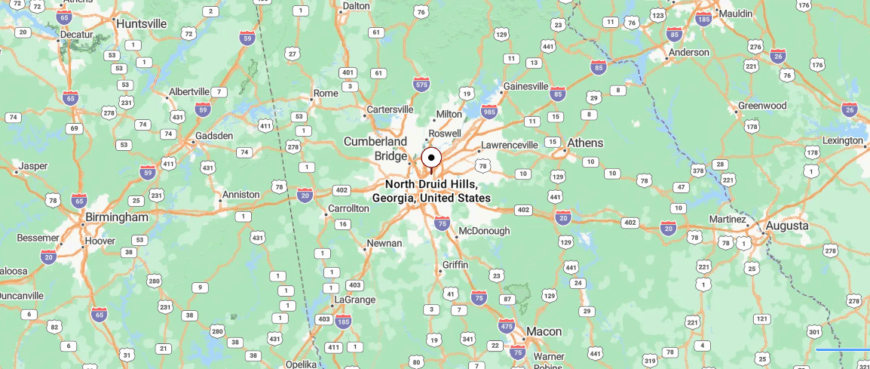
North Druid Hills is a community in DeKalb County, located about 8 miles northeast of downtown Atlanta. It is bordered by Brookhaven to the north, Decatur to the east, and the city of Atlanta to the west. Major routes such as I-85, Clairmont Road, and North Druid Hills Road run through the area, making it highly accessible.
Its position places it close to Emory University, the CDC, and other major institutions. Lenox Square and the Buckhead business district are just a short drive away. With its central spot inside the Perimeter, North Druid Hills sits at a key crossroads in Atlanta’s northeast corridor.
#8. Tyrone, Georgia
– Overall Rank: 356
– Population: 7,710
– Median household income: $112,898
– Median home value: $372,700 (90% own)
– Median rent: $1,094 (10% rent)
– Top public schools: McIntosh High School (grade A+), Coweta Charter Academy (grade A), Booth Middle School (grade A)
– Top private schools: Woodward Academy – College Park (grade A+), Landmark Christian School (grade A+), The Forest School: An Acton Academy (grade A+)

About
Tyrone, a small town in Fayette County, is home to about 8,000 residents and is known for its quiet, suburban character. Incorporated in 1911, it has grown steadily while maintaining strong ties to its rural roots. Its location just north of Peachtree City and south of Atlanta makes it convenient for commuters seeking a slower pace of life.
The town offers parks, athletic fields, and community spaces that support outdoor activity and family recreation. Events such as local festivals and seasonal gatherings bring neighbors together throughout the year. Schools in the Fayette County district add to its appeal for families looking for quality education.
Tyrone thrives on its mix of tradition and growth, with residential neighborhoods surrounded by open land. A strong sense of community pride and connection defines daily life. It remains a place where small-town values and suburban convenience coexist.
Where is Tyrone?
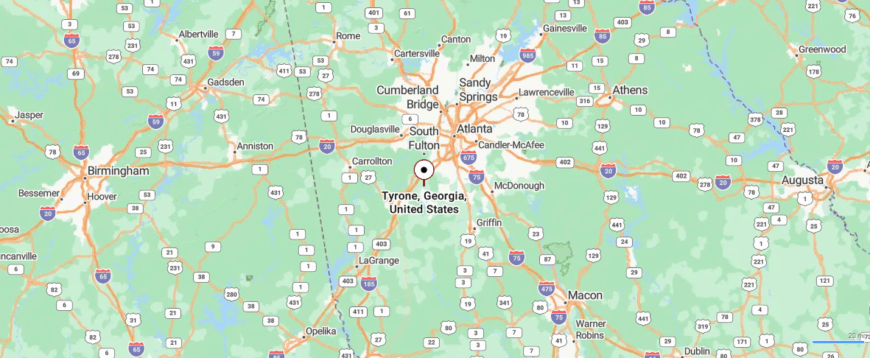
Tyrone is a town in Fayette County, located about 25 miles southwest of downtown Atlanta. It sits just north of Peachtree City and west of Fayetteville, with easy access to I-85 via State Route 74. The town’s location places it within commuting distance of both Atlanta and Hartsfield–Jackson International Airport.
Its position in the southwest metro area connects Tyrone to nearby communities in Coweta and Fulton counties. The town is surrounded by rolling countryside and growing suburban neighborhoods. With its proximity to major highways and regional centers, Tyrone serves as a convenient and connected part of Fayette County.
#7. Suwanee, Georgia
– Overall Rank: 274
– Population: 21,238
– Median household income: $100,780
– Median home value: $375,500 (64% own)
– Median rent: $1,826 (36% rent)
– Top public schools: Gwinnett School of Mathematics, Science & Technology (grade A+), Buford Senior Academy (grade A+), Peachtree Ridge High School (grade A+)
– Top private schools: Notre Dame Academy (grade A+), Greater Atlanta Christian School (grade A+), Wesleyan School (grade A+)

About
Suwanee, located in Gwinnett County, has grown into a thriving suburb of more than 20,000 residents. Once a small railroad town, it is now recognized for its strong sense of community and family-centered atmosphere. Its position northeast of Atlanta makes it convenient for commuters while retaining its suburban charm.
At the heart of the city is Suwanee Town Center, a lively gathering spot with restaurants, shops, and open space for concerts and festivals. Outdoor life is supported by the Suwanee Creek Greenway and numerous parks that connect neighborhoods through trails and recreation. Schools consistently receive strong marks, adding to the city’s appeal.
Community spirit is visible in year-round events, from food truck nights to cultural celebrations that bring residents together. Suwanee balances growth with green space and civic pride, making it a standout among metro Atlanta suburbs. It remains a place where progress and close-knit living intersect.
Where is Suwanee?
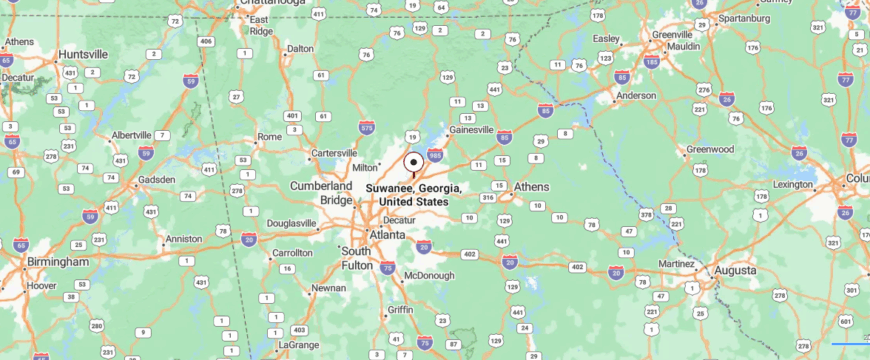
Suwanee is in Gwinnett County, about 35 miles northeast of downtown Atlanta. The city is positioned between Duluth to the south and Sugar Hill to the north, with I-85 and Peachtree Industrial Boulevard serving as its main travel routes. Suwanee Creek runs through the community, while the Chattahoochee River forms part of its western edge.
Its location places Suwanee within easy reach of neighboring suburbs like Johns Creek and Buford. It sits in the heart of metro Atlanta’s fast-growing northeast corridor, offering strong connectivity to the region. With nearby highways and natural boundaries, Suwanee is firmly anchored within Gwinnett County.
#6. North Decatur, Georgia
– Overall Rank: 253
– Population: 17,183
– Median household income: $103,468
– Median home value: $410,800 (57% own)
– Median rent: $1,609 (43% rent)
– Top public schools: Talley Street Elementary School (grade A+), Atlanta Classical Academy (grade A), DeKalb School of the Arts (grade A)
– Top private schools: Pace Academy (grade A+), Atlanta International School (grade A+), The Paideia School (grade A+)
You may also like: The top patent earner in Georgia last year

About
North Decatur, an unincorporated community in DeKalb County, has a population of around 18,000 and sits just northeast of Atlanta. Its location near Emory University and the CDC connects it closely to education, research, and healthcare. The area features a mix of residential neighborhoods, commercial centers, and easy access to major highways.
Residents enjoy proximity to parks, trails, and cultural venues in nearby Decatur while maintaining a quieter suburban environment. North DeKalb Mall and local shopping corridors provide convenience for daily needs. Schools and community services further support its family-friendly appeal.
Community identity is shaped by neighborhood associations, civic groups, and local events that bring residents together. North Decatur thrives on its balance of suburban living and urban access. It remains a connected, livable community within the greater Atlanta area.
Where is North Decatur?
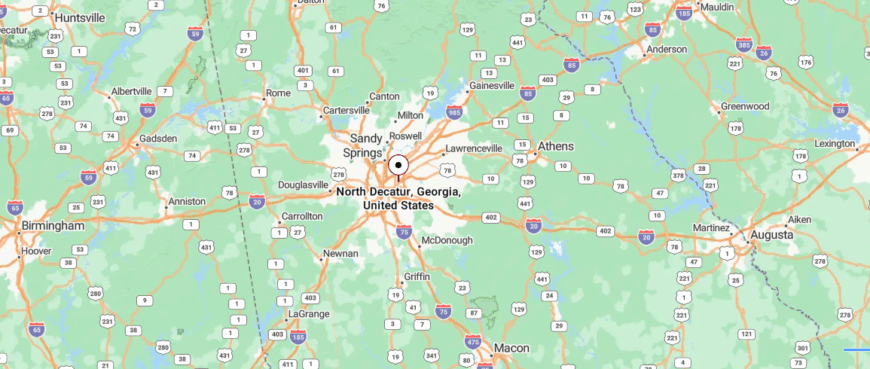
North Decatur is a community in DeKalb County, located about 7 miles northeast of downtown Atlanta. It borders Decatur to the south, Druid Hills to the west, and North Druid Hills to the north. Major routes such as Lawrenceville Highway, Clairmont Road, and North Decatur Road provide direct access to surrounding areas.
Its position places it close to Emory University, the CDC, and the city of Decatur’s downtown district. The community also sits within minutes of I-285, offering regional connections around Atlanta. With its central spot in DeKalb County, North Decatur is closely tied to both urban and suburban centers.
#5. Roswell, Georgia
– Overall Rank: 204
– Population: 92,770
– Median household income: $122,924
– Median home value: $479,400 (71% own)
– Median rent: $1,619 (29% rent)
– Top public schools: Alliance Academy for Innovation (grade A+), Milton High School (grade A+), Denmark High School (grade A+)
– Top private schools: Fulton Science Academy Private School (grade A+), The Walker School (grade A+), Notre Dame Academy (grade A+)

About
Roswell, a city in north Fulton County with more than 90,000 residents, is one of Georgia’s largest and most historic suburban communities. Founded in the 1830s by Roswell King, it developed around cotton mills that shaped its early economy. Today, it blends historic districts with modern neighborhoods, offering both tradition and growth.
The city’s historic downtown is a centerpiece, lined with shops, restaurants, and landmarks such as Barrington Hall and Bulloch Hall. Parks and green spaces, including the Chattahoochee River National Recreation Area, provide residents with outdoor opportunities. Roswell also maintains a strong school system and a thriving local economy.
Community life thrives on festivals, concerts, and cultural events that draw people from across the region. Residents value its combination of history, recreation, and modern convenience. Roswell stands as a city where heritage and progress intersect seamlessly.
Where is Roswell?
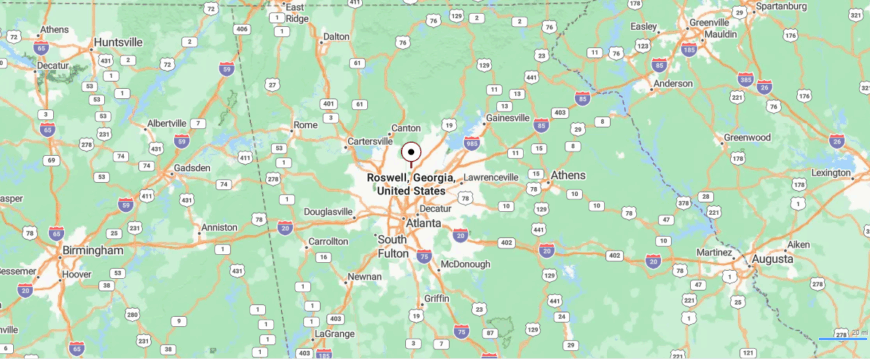
Roswell is a city in northern Fulton County, located about 20 miles north of downtown Atlanta. It is bordered by Alpharetta and Milton to the north, Johns Creek to the east, and Sandy Springs to the south. Georgia 400 runs along its eastern edge, providing direct access to Atlanta and the surrounding suburbs.
The Chattahoochee River forms Roswell’s southern boundary, offering both natural scenery and a defining landmark. Its location places it within the heart of Atlanta’s northern arc of fast-growing communities. With riverfront access, major highways, and neighboring cities nearby, Roswell holds a central position in North Fulton County.
#4. Decatur, Georgia
– Overall Rank: 163
– Population: 24,421
– Median household income: $129,992
– Median home value: $654,400 (64% own)
– Median rent: $1,611 (36% rent)
– Top public schools: Talley Street Elementary School (grade A+), Oakhurst Elementary School (grade A), Westchester Elementary School (grade A)
– Top private schools: The Paideia School (grade A+), Midtown International School (grade A+), Capstone Academy (grade A+)

About
Decatur, the county seat of DeKalb County, is a city of about 25,000 residents just east of Atlanta. Known for its historic square and walkable streets, it combines small-town character with the amenities of an urban center. Its location and MARTA access make it especially popular with commuters and families.
The downtown area is filled with restaurants, shops, and cultural venues, creating a lively hub for both residents and visitors. Schools in Decatur consistently rank among the best in the state, reinforcing the city’s family-oriented appeal. Festivals like the Decatur Arts Festival and Book Festival highlight its strong cultural scene.
Community pride is visible in neighborhood associations, civic events, and ongoing preservation efforts. Decatur thrives on its mix of history, education, and creativity. It remains a place where tradition and modern living blend seamlessly.
Where is Decatur?

Decatur is the county seat of DeKalb County, located about 6 miles east of downtown Atlanta. It is bordered by Druid Hills to the west, Avondale Estates to the east, and North Decatur to the north. Major routes such as Ponce de Leon Avenue, Clairmont Road, and College Avenue run through the city, with MARTA rail providing direct transit into Atlanta.
Its location places Decatur at the center of several historic and established communities in central DeKalb County. The city sits just inside the I-285 perimeter, giving it convenient regional access. With close ties to both Atlanta and surrounding suburbs, Decatur serves as a key hub in the metro area’s east side.
#3. Milton, Georgia
– Overall Rank: 132
– Population: 41,029
– Median household income: $142,845
– Median home value: $642,500 (74% own)
– Median rent: $1,765 (26% rent)
– Top public schools: Alliance Academy for Innovation (grade A+), Alpharetta High School (grade A+), Milton High School (grade A+)
– Top private schools: Fulton Science Academy Private School (grade A+), Mount Pisgah Christian School (grade A+), Pinecrest Academy (grade A+)

About
Milton, located in north Fulton County, is a city of about 42,000 residents known for its rolling countryside and equestrian heritage. Incorporated in 2006, it has worked to preserve its rural character while accommodating steady suburban growth. Large lots, open spaces, and scenic roads give Milton a distinctive identity within metro Atlanta.
The city emphasizes outdoor living, with parks, greenways, and equestrian facilities playing a central role in community life. Bell Memorial Park and Birmingham Park offer trails and recreation, while local farms and stables reflect Milton’s agricultural roots. Schools in the area are highly rated, attracting families who value both education and open space.
Community ties are strengthened through seasonal festivals, farmers markets, and neighborhood gatherings. Milton continues to thrive on its balance of tradition and progress, blending a rural atmosphere with modern convenience. It remains a city where nature, family life, and community pride come together.
Where is Milton?
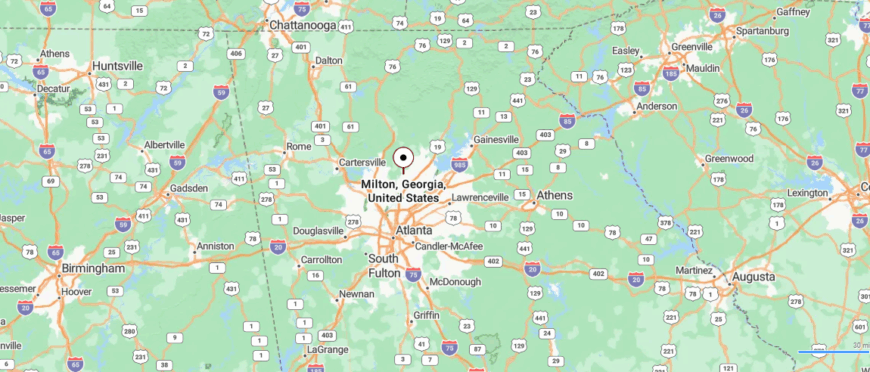
Milton is a city in North Fulton County, located about 30 miles north of downtown Atlanta. It is bordered by Alpharetta to the south, Roswell to the southeast, and Cherokee County to the west and north. Georgia State Route 9 and State Route 372 provide its main travel routes, with GA 400 nearby for direct access into Atlanta.
Its position places Milton in the foothills of North Georgia, with rolling countryside defining much of its landscape. Neighboring communities like Cumming and Johns Creek are within easy reach. With its location at the northern edge of Fulton County, Milton serves as a gateway between metro Atlanta and the rural stretches of the Appalachian foothills.
#2. Alpharetta, Georgia
– Overall Rank: 16
– Population: 65,884
– Median household income: $141,402
– Median home value: $562,000 (67% own)
– Median rent: $1,767 (33% rent)
– Top public schools: Alliance Academy for Innovation (grade A+), Alpharetta High School (grade A+), Milton High School (grade A+)
– Top private schools: Fulton Science Academy Private School (grade A+), Notre Dame Academy (grade A+), Marist School (grade A+)

About
Alpharetta, in north Fulton County, is a thriving city of more than 65,000 residents and one of metro Atlanta’s most dynamic suburban centers. Once a small trading post in the 19th century, it has grown into a hub for business, technology, and residential living. Its location along GA-400 makes it both accessible and highly desirable.
The city is home to Avalon and Alpharetta City Center, mixed-use districts filled with shops, restaurants, and entertainment. Outdoor venues like Ameris Bank Amphitheatre host concerts and cultural events that draw large crowds. Parks, greenways, and excellent schools further reinforce Alpharetta’s family-friendly appeal.
Alpharetta thrives on innovation, culture, and community pride. Residents enjoy a steady rhythm of festivals, farmers markets, and local programs that bring people together. It remains a city where progress, lifestyle, and tradition converge seamlessly.
Where is Alpharetta?
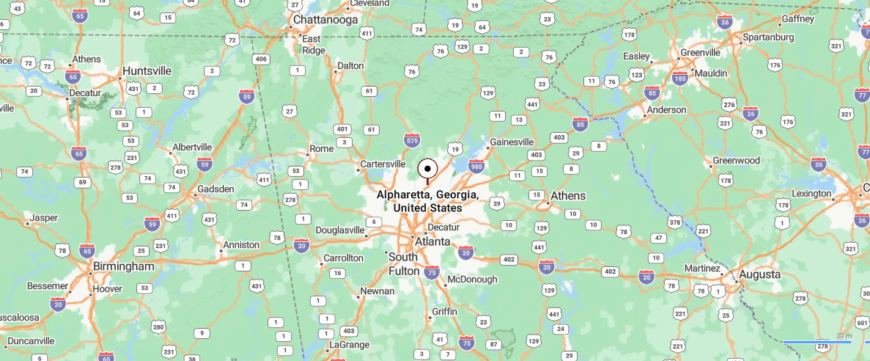
Alpharetta is a city in northern Fulton County, about 26 miles north of downtown Atlanta. It is bordered by Milton to the north, Johns Creek to the east, and Roswell to the south. Georgia 400 runs directly through the city, making it one of the main access points between metro Atlanta and North Georgia.
Its location places Alpharetta within the heart of the region’s northern growth corridor. Nearby communities such as Cumming and Sandy Springs are easily reached by highway. With its position along GA 400 and central spot in North Fulton, Alpharetta anchors Atlanta’s northern suburbs.
#1. Johns Creek, Georgia
– Overall Rank: 6
– Population: 82,230
– Median household income: $153,882
– Median home value: $525,100 (79% own)
– Median rent: $1,944 (21% rent)
– Top public schools: Alliance Academy for Innovation (grade A+), Alpharetta High School (grade A+), Northview High School (grade A+)
– Top private schools: Fulton Science Academy Private School (grade A+), Notre Dame Academy (grade A+), Greater Atlanta Christian School (grade A+)
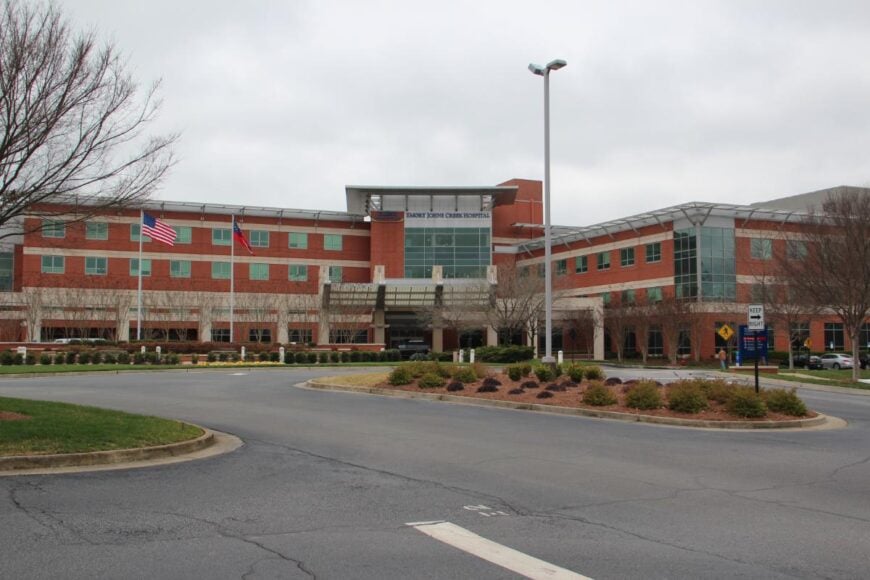
About
Johns Creek, located in Fulton County, is a city of nearly 85,000 residents and one of Georgia’s most sought-after suburban communities. Incorporated in 2006, it has quickly built a reputation for its high quality of life, excellent schools, and safe neighborhoods. Its location northeast of Atlanta makes it a convenient home for commuters while maintaining a strong suburban identity.
The city emphasizes recreation and culture, with Newtown Park, Ocee Park, and the Johns Creek Arts Center serving as community hubs. The Chattahoochee River runs along its eastern edge, offering trails, fishing, and boating opportunities. A calendar full of festivals, concerts, and cultural events reflects its diverse and active population.
Community pride is visible in neighborhood associations, civic engagement, and a commitment to preserving green space. Johns Creek continues to balance steady growth with a strong family-oriented focus. It remains a place where culture, recreation, and community connection thrive side by side.
Where is Johns Creek?
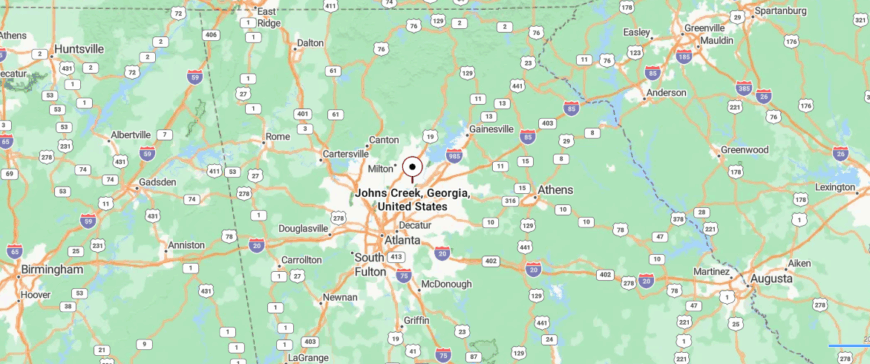
Johns Creek is a city in northeast Fulton County, about 27 miles from downtown Atlanta. It is bordered by Alpharetta to the west, Suwanee to the north, and Duluth to the south. The Chattahoochee River forms its eastern boundary, separating it from Forsyth and Gwinnett counties.
Its location places Johns Creek within metro Atlanta’s fast-growing northeast corridor. Major routes such as State Bridge Road and Medlock Bridge Road connect it to surrounding suburbs and Georgia 400. With its riverfront edge and proximity to neighboring cities, Johns Creek occupies a central position in North Fulton County.
This story features data reporting and writing by Elena Cox and is part of a series utilizing data automation across 40 states.
You may also like: Cities with the most expensive homes in Georgia
By Stacker
Haven't Seen Yet
Curated from our most popular plans. Click any to explore.










